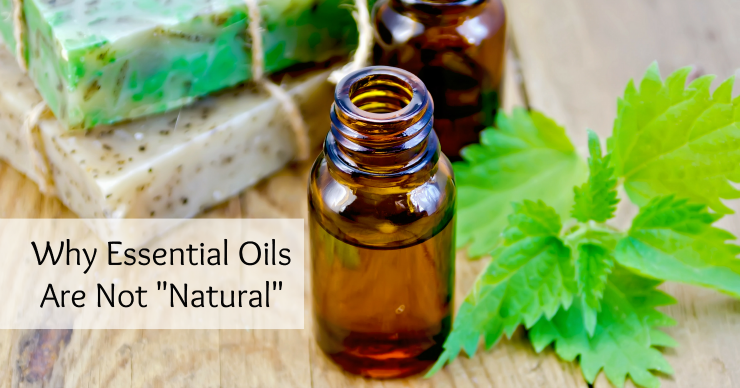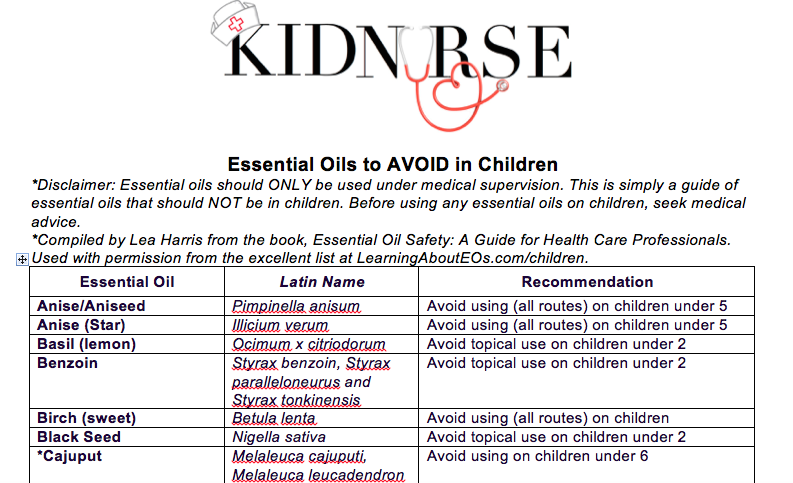Why Essential Oils Aren’t “Natural”
June 2, 2015
“Essential oils aren’t ‘natural’? What?!?!”
Yes. You heard me. In my opinion, essential oils are about as natural as aspirin or antibiotics. Are essential oils derived from nature? Well of course. But let me explain why I still believe they aren’t actually “natural.”
You would have to have your head buried in the sand to not know about the latest craze in the realm of alternative medicine: essential oils. In fact, I think we all have a friend on Facebook filling up our feeds with the splendor and glory of essential oils while urging us to give it a try. Even though I am a nurse practitioner, and I have good access to healthcare, I like being sick as much as you do. Which is… NEVER. So if diffusing lavender smells good, while boosting my energy for life, while keeping everyone who enters my front door free from all pesky pathogens, while putting my future toddlers and me into a deeper, rejuvenating sleep at night, who WOULDN’T try it? Channel that flower power through my home, baby!

Why Essential Oils Aren’t “Natural”
Despite all the claimed benefits, essential oils still aren’t any bit more natural than clean drinking water. Does that seem extreme to you? Maybe, but it really isn’t that much of a stretch. To understand what I am talking about, you must first better understand what essential oils are. How are they made? What are they composed of? This concept is important because many of the families I regularly work with use essential oils without fully understanding what they are. I’ve already spent most of my day swimming through a myriad of essential oil sales articles to sort facts from myths (after all, the essential oil industry does make over $1 billion dollars a year in annual revenue). So here goes:
Essential oils are defined as, “any of a class of volatile (ie vaporizes easily) oils that give plants their characteristic odors and are used especially in perfumes and flavorings, and for aromatherapy.”
Seems basic enough. Essential oils are plant extracts that smell nice and are supposed to make our life better. Okay… Classically, when essential oils are used for aromatherapy, oils are inhaled, applied to the skin, or ingested.
But here is a critically important point: Essential oils have an incredibly strong concentration. For example, the Young Living website (one of the main essential oil distributors) boasts that it takes 75 lemons to make one 15 mL bottle of lemon oil, 27 square feet of lavender plants to make one 15 mL bottle of lavender, and an entire pound of raw peppermint to make one 15 mL bottle of peppermint oil. While the concentration varies from company to company, generally speaking, an extremely small amount of essential oils (even a single drop) has a very strong, compounded medicinal effect. For example, 1 drop of peppermint oil is equivalent to approximately 26-28 cups of peppermint tea.
Important note: peppermint is not recommended by the National Association for Holistic Aromatherapy for children under 30 months of age because it “may lead to apnea and glottal constriction,” aka: throat swelling to the point your child stops breathing.
So that brings me to my point. At what point does this extreme concentration make a product technically produced from nature, “un-natural”? Would you let your child consume 26-28 cups of peppermint tea and call it natural? Would you tell your toddler to roll through a lavender field in their diaper to let their skin soak up the wonderful health benefits? Would you pick a few lemons and squeeze them all over your kid’s skin until they smelled like a walking lemonade stand all in the name of health?
I know I wouldn’t.
Now, hear my heart, people. I love learning about new therapies that help people. Truly. If there is a remedy out there that is improving my patients’ quality of life, be it “natural” or not, I want to know about it. But that being said, the reason why essential oils can be dangerous is, natural is not synonymous with safe. For that reason, we shouldn’t give essential oils a free pass simply in the name of natural medicine. Let me give you a few other examples of remedies that are arguably just as “natural” as essential oils:
- Cocaine is derived from a plant. I think we can all agree that its use is not safe in children.
- Marijuana is derived from a plant. Again, use in children is discouraged.
- Quinine is the world’s best defense against malaria. It was discovered in 1841 by Dr. Thomas R. H. Thomson. My best friend is a pediatric nurse practitioner ministering and providing health care in Africa, and she has taken this medication countless times. Quinine is derived from the bark of cinchona trees and is yet another “natural” drug that saves the lives of hundreds of thousands of people every year.
- Aspirin, which sells over 80 million tablets a year in North America alone (and should never be used in children!), was isolated from Salix alba, a bark, and produced by Bayer starting in 1899.
- Remember also that antibiotics were originally accidentally discovered in 1928 from naturally occurring mold.
In fact, in the last 30 years, 50% of the approved “modern” drugs were developed either directly or indirectly from natural products. (For a very in-depth historical overview of natural products in drug discovery, I recommend this article.)
Despite these statistics, essential oils remain the key player in the latest round of the natural-medicine vs modern-medicine war. A simple social media search can show you that this debate is fierce. Before the comments on this blog trend in that direction, let me make one more point: I am not completely against essential oils. I am simply saying that we must take off our rosy-colored, “natural” glasses and truly ask ourselves this question with ANY chemical that we use in or on our children: Is this chemical SAFE and is it EFFECTIVE? I am 100% against the use of any chemical in children that is unsafe and/or ineffective and you should be too.
So, let’s all be on the same team. There doesn’t have to be a great divide between “natural” medicine vs. “modern” medicine. Together we should be on the team that promotes health and healing whether it’s an age-old remedy or a ground-breaking new discovery. I feel like Dr. Paul Offit says it best:
“There’s no such thing as alternative medicine. There’s only medicine that works and medicine that doesn’t.”
So, let’s find the medicines that works! The ones that are both safe and effective. And let’s remember to be kind to each other in the process.
Read part two of my series on essential oils: House of Cards: The Toxic Combination of Essential Oils and Multi-Level Marketing.
Essential Oils You Should NEVER Give Your Kids
Not sure if you can use an essential oil on your child? I highly recommend that you download this comprehensive list of essential oils that should NOT be used on children. It was compiled (and used with permission) by Lea Harris from the book, Essential Oil Safety: A Guide for Health Care Professionals and it is SO helpful! For more of her resources visit: www.learningabouteos.com.
Do you use essential oils on your child? Tell me in the comments below!
Author: Dani Stringer, MSN, CPNP, PMHS – founder of KidNurse and MomNurse Academy

Hi Kid Nurse.
I am very glad to have read this article as it helps me see how essential oils are viewed from a nurse’s point of view. I am currently studying to be an Aromatherapist and this issue has been often brought to light. It is true that essential oils should not be offered without first consultation as many can be dangerous. My teachers and academy can’t stop stressing about the precautions of use whether on children or people with immune deficiency, not to mention the dangers to pregnant women. And yes there are many companies who do not keep to a true natural standard. But that why it is a bit discouraging to be in this field here in North America. In Europe, Aromatherapy is associated with Pharmaceutic university studies. Your pharmacist can suggest what is safest before you buy it off the shelf, plus their standard is more scrutinized. I only hope that the bickering would stop and that both old school medicine and modern medicine would align themselves for once and concentrate on what’s really important: Keeping people healthy.